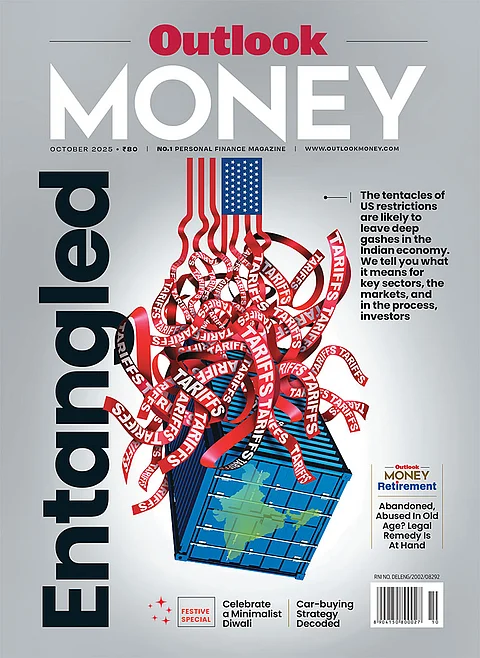Financial stress weighs heavy on the mind. While there are uncertainties that we can do nothing about, there are numerous issues within our control that can help us combat the anxiety. Let me use a historical narration to set the foundation and drive home the point.
During WWI, France suffered terribly at the hands of Germany, and 5 per cent of the country’s total population perished in the war. The cost was severe both economically and psychologically. Not wanting to ever be this vulnerable again, France built the Maginot Line—a 280-mile-long defensive barrier of concrete bunkers, constructed along its eastern border with Germany.
While its purpose was to be a formidable defence on the French-German frontier, it did not cover the French-Belgian border. The assumption being that should Germany try to enter France by attacking through Belgium, other European powers would intervene and defeat the Germans in Belgium. The assumption proved disastrous.
During WWII, the Germans outflanked the Maginot Line by invading through the low-lying areas of The Netherlands, and then moved into Belgium and France. Not only did the Maginot Line turn out to be one of history’s most impressive yet regrettable engineering feats, the assumption of a German invasion through Belgium not occurring proved to be a colossal mistake for the French.
Using this as a backdrop, I want to tell you two things:
A) how to build a defence around your finances, and B) the danger of relying on assumptions. When you take the following five steps to avoid being financially fragile, you fortify your financial position, you stress less, and peace is the outcome.
First Line Of Defence: Get Covered
DON’T ASSUME a smooth ride. Life has its own vagaries of ups and downs.
You never buy medical insurance because you hope to submit a claim someday. You never buy term insurance because you hope your loved ones can submit a claim someday. You buy it to protect yourself and your family against a misfortune.
Imagine the plight of a family where the breadwinner passes away. Besides the emotional devastation, the tragedy would be compounded if there was no life insurance as a safety net. If you are the primary source of support for even one other individual, get your insurance sorted out before evaluating the investment alternatives.
The same applies to having adequate health cover. There is a line that keeps doing the rounds: “A middle class family is just one medical bill away from bankruptcy.” If that is too extreme, then let me tone it down a bit; just one illness of a family member can cause a major dent in your savings.
Don’t depend solely on your job for a medical cover. Should you lose your job or you are between jobs, you will have no cover. Get a personal medical cover for the entire family.
Second Line Of Defence: Have An Emergency Fund
DON’T ASSUME that your pay cheque can cover whatever life throws at you.
The pandemic presented us with multi-faceted challenges and crises of physical, mental and emotional health, along with other humanitarian crisis, and economic crisis. Many lost their jobs, while few were immune from income disruptions. It was in 2020 and 2021 that the emergency fund got an image makeover.
Building an emergency fund is NOT optional. You will always need a safety net because emergencies occur even in the best of times. Accidents, urgent dental treatment, travel in case of death, sudden home repairs. Crises cause emotional stress, but also have financial repercussions. By preparing for them, at least the financial blow can be absorbed.
I used to recommend three months of expenses for a dual-income household, and six months for a single-income household. After being witness to both spouses getting salary cuts and many losing their job, I now err on the side of caution and recommend 12 months of basic expenses in an emergency fund.
Third Line Of Defence: Curb Debt
DON’T ASSUME that debt is harmless just because you successfully manage to make the minimum payments when due.
A friend had a job with Silicon Valley Bank, but moved out a few months ago. When the bank collapsed, his relief was that not only he had a job, but he was still earning to service his loan. Few individuals can go through life having never incurred debt. In fact, it is a near impossibility for many. How else would you buy a house or fund your higher education? Don’t be debt averse, be debt aware.
I am specifically shining the spotlight on credit card debt—the type of debt you incur when you view credit as an easy access towards maintaining a particular lifestyle. This type of debt has severe consequences. It weighs you down. It costs you your peace. It’s a drain on your income. It hinders your savings ability.
Sporting a lifestyle with money that you do not have is a dangerous way to live. Debt may get you noticed and grant you momentary satisfaction, but will never help you win.
When you service a credit card debt of around 24 per cent annualised, be extremely mindful of the fact that this debt costs you a lot more than you can ever earn elsewhere. Even if you are servicing a much cheaper loan—say, at 12 per cent per annum, once you clear it, there is an immediate return there.
Get ahead of your debt. Pay it down and reduce your stress levels. Choose to be aggressive with your savings and conservative with your debt.
Fourth Line Of Defence: Kick-Start Your Retirement Savings
DON’T ASSUME that you will somehow manage to fill your kitty later on.
Financial independence and retirement are not necessarily linked at the hip. They exist independently. To retire, you must be financially independent, though I do know of individuals who are dependent on their children for support. That is not a very desirable situation, but that is the unfortunate reality for many.
On the other hand, you can be financially independent and choose not to retire. Plenty fall into this category as well.
I am not going to give any generalised suggestions with regards to a retirement corpus. It is extremely personal, and a myriad of factors need to be accounted for, such as your sources of income after retirement, single or married status, living in a joint family or nuclear family, risk capability, lifestyle, debt, age, and so on.
But I will say this: Start now, be consistent, and save relentlessly. Being old and broke is frightening.
Fifth Line Of Defence: Invest In Yourself
DON’T ASSUME that you will always be relevant professionally.
No matter your life stage, staying current on the latest major technology developments and news, both on and off the job, is a crucial way to ensure that you stay relevant.
Explore all avenues—degrees, certifications, skills that you need to develop or learn—workshops, webinars, podcasts, and so on. Look for a mentor, check out LinkedIn Learning, and read about the subject you want to increase your knowledge in…
You get the gist. Don’t stop learning, because this is what will help you earn constantly and keep you relevant. Be intentional about what you want to stand for professionally and what you have to offer.
The author is an Investment Specialist at Morningstar India







